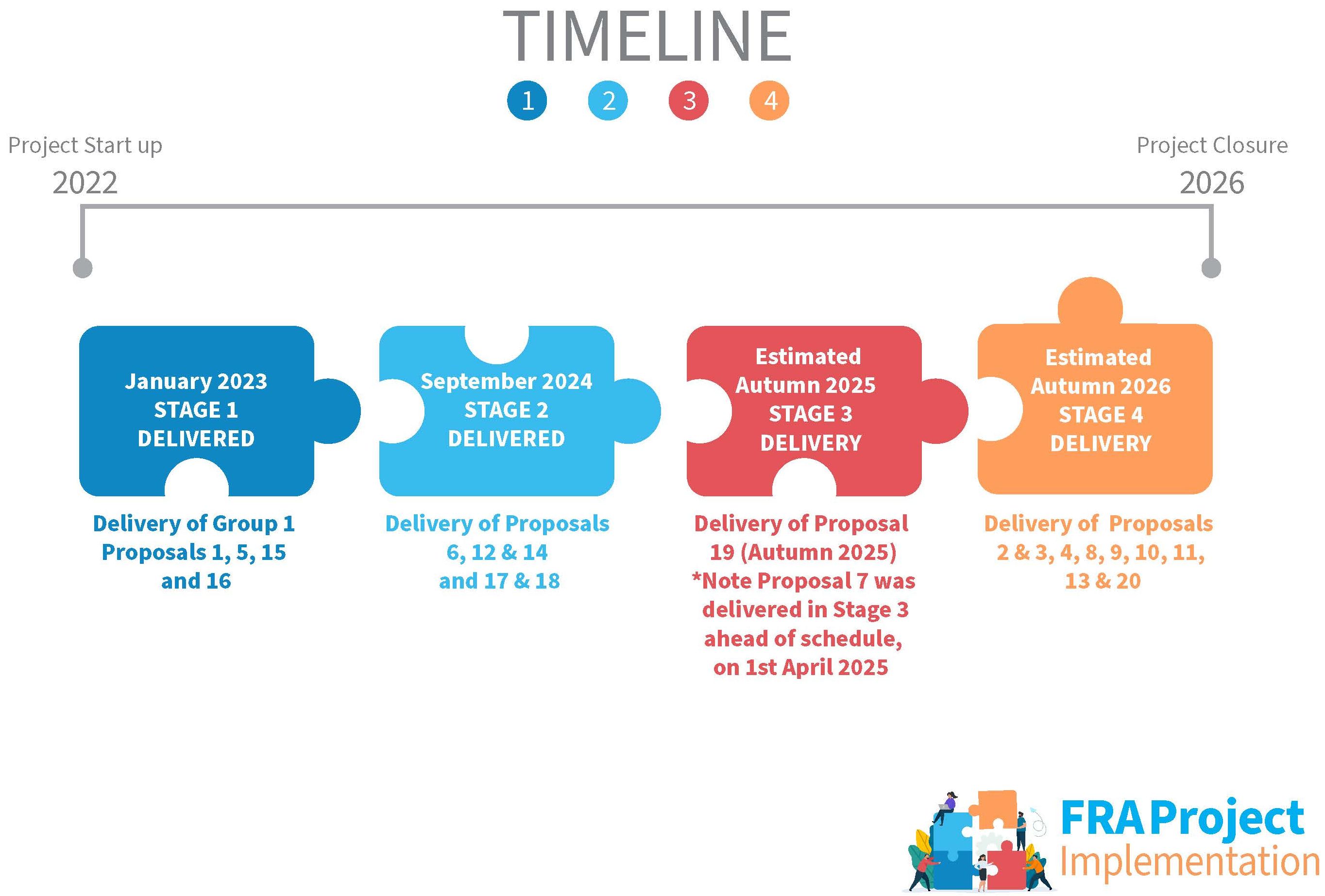Fundamental Review of Allocations
In this section
- How to apply for a home
- Applying from outside Northern Ireland
- How we assess your application
- Renewals
- The Housing Selection Scheme
- Areas of choice
- Transfers and exchanges
- Allocations
- Complex needs
- Choice Based Lettings
- Advice for people from abroad
- Fundamental Review of Allocations
- Housing Solutions and Support
What is the Fundamental Review of Allocations Implementation Project?
The Department for Communities led a review to improve how social homes are allocated in Northern Ireland.
This included looking at the Housing Selection Scheme and the allocation processes.
This is called the Fundamental Review of Allocations (FRA).
As part of this review, the Department:
- commissioned independent research
- consulted on the recommendations
- worked with us (and others including Housing Associations) to identify proposals for change
Twenty proposals to improve the social housing allocation system were identified.
Public consultation on the proposed changes was carried out in 2017. A consultation outcome report was published in December 2020.
You can read the consultation documents and find out more about each of the 20 proposals at the Department for Communities' website:
The Minister for Communities decided that:
- eighteen proposals would be taken forward and
- two proposals would need more investigation
- these related to the removal of Intimidation Points and Interim Accommodation Points
The Housing Executive is responsible for implementing the proposals in place.
We established the FRA Implementation Project to deliver the eighteen agreed changes and develop options for alternative proposals for the remaining two.
The Project will also:
- consider the issues raised by respondents and
- take forward targeted consultation with stakeholders throughout implementation of the changes
What this means for you
The Housing Selection Scheme and Common Waiting List governs the allocation of all permanent social housing in Northern Ireland.
Customers currently:
- complete a single application for social housing
- are assessed under the rules of the Housing Selection Scheme and
- if eligible, are then added to the Common Waiting List
Social housing includes both Housing Executive and Housing Association homes. These homes are allocated to the applicant on the waiting list with the highest number of points.
Changes are being made to the Housing Selection Scheme and allocations process.
These changes should ensure that those in the greatest housing need receive priority and that their time in need is recognised.
This will mean a better, more efficient service for people in housing need.
Every household on the waiting list will be informed of changes at key stages of the Project.
We will also inform political representatives and external stakeholders about these changes.
The first set of changes were introduced in January 2023. More information on these changes is available at:
Fundamental Review of Allocations stage 1 delivery
A new online platform for housing advice and assistance is also being developed. This will replace existing housing and homeless modules which are staff facing only.
The new customer facing platform will mean that anyone needing housing advice and assistance can apply online and create an account to manage their application.
Enabling customers to apply and manage their application online should the ease the administrative burden, allowing our housing advisors more time to provide housing and homelessness advice and assistance. Service provision will remain digital by choice.
This means that customers will still be able to ask for housing assistance and advice via telephone, or by calling into their local office if they prefer to do so.
The new platform will go live at the end of Stage 4 delivery with the last set of Proposals to be implemented.
Overview of the Project
There are four key delivery stages involved in the implementation of changes to Housing Selection Scheme and wider allocation policies.
The Project has successfully delivered 10 of the 20 proposals for change and is now within Stage 3.
Stage 1 delivery
The FRA implementation project delivered the first of the changes to the Housing Selection Scheme on 30th January 2023.
Stage 2 delivery
The Housing Selection Scheme Rules associated with Stage 2 delivery are effective from 2 September 2024.
The second group of changes under the Fundamental Review of Allocations include proposals 6; 12 and 14; and 17 and 18.
The diagram below outlines delivery for each proposal for change. The first two stages have been delivered.

